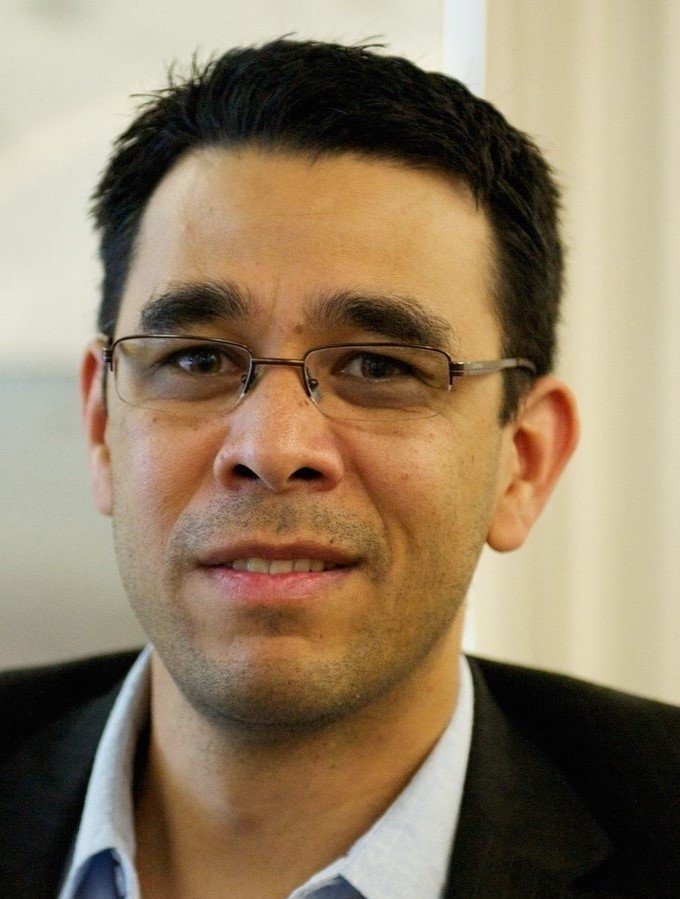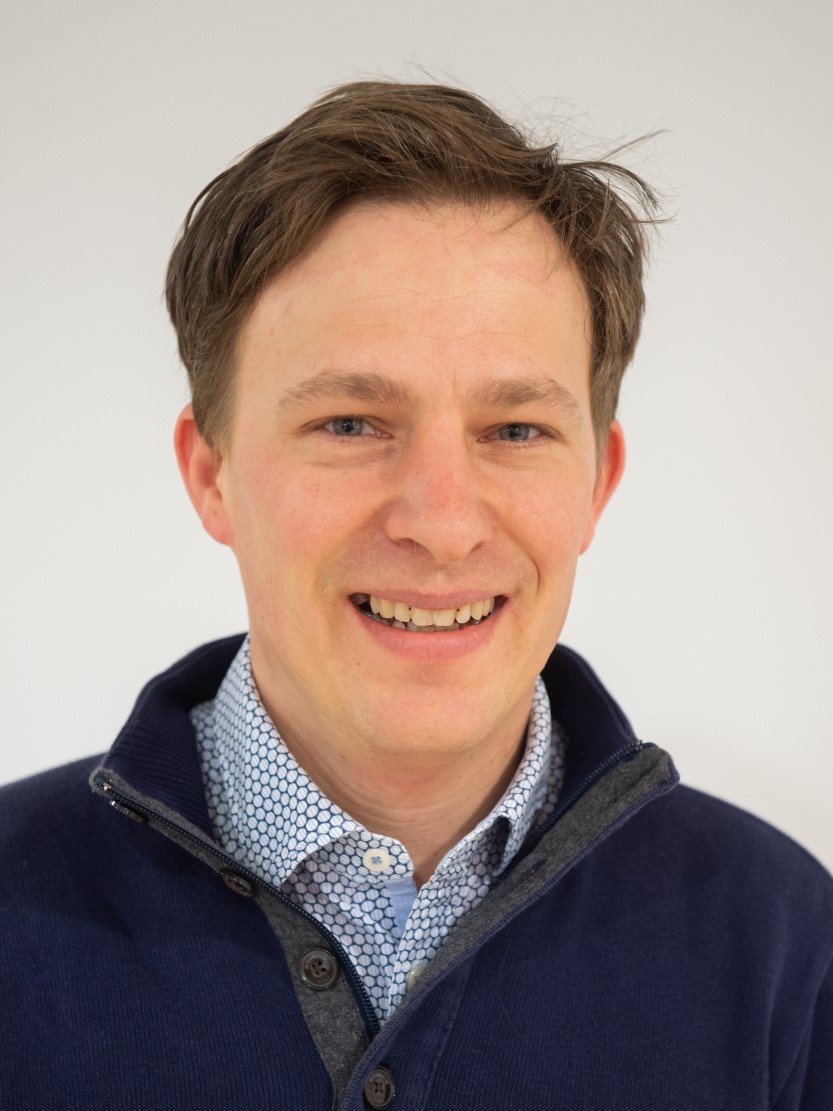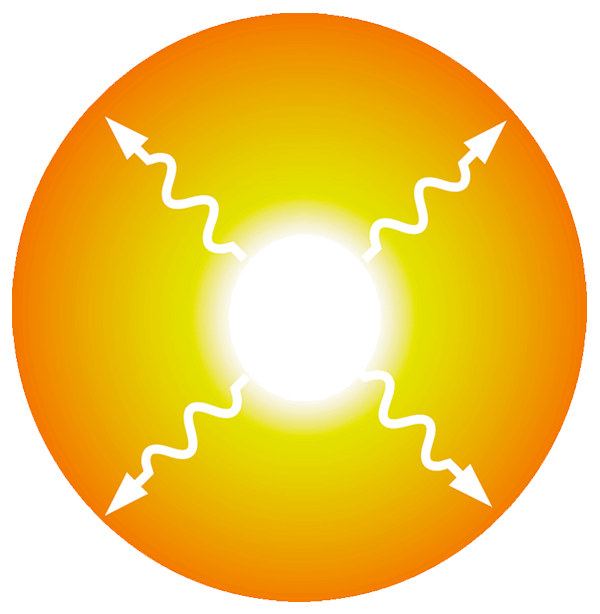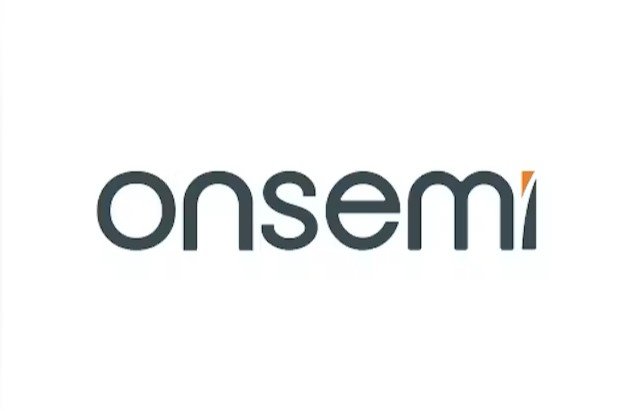
10th International Conference on Optical, Optoelectronic and Photonic Materials and Applications
ICOOPMA 2024
June 23-28, 2024
University of Pardubice, Czech Republic
Organized by
Center of Materials and Nanotechnology
and
Department of General and Inorganic Chemistry
Faculty of Chemical Technology
University of Pardubice
Czech Republic
In cooperation with
CONCREA, s.r.o. Czech Republic
Join the conference
Application for pre-registration and abstract submission opens on October 1, 2023.
Registration opens on January 1, 2024.
Dear Colleagues,
It is with pleasure that we invite you to the 10th International Conference on Optical, Optoelectronic and Photonic Materials and Applications (ICOOPMA).
ICOOPMA is an international conference series on optical, optoelectronic and photonic materials for a wide range of applications from telecommunications to photovoltaics, and optical, optoelectronic and electro-optic properties of all classes of materials and material systems.
The conference will be held on June 23-28, 2024, in the historical buildings of the University of Pardubice, Czech Republic, situated in the vicinity of hotels and student's dormitories and within a walking distance from the city center.
The city of Pardubice is located about 100 km east of Prague, the capital of Czech Republic and Kutná Hora. Both places are listed on UNESCO heritage.
ICOOPMA is a non-profit conference that is run by scientists for scientists without any institutional constraints and restrictions.
The previous eight ICOOPMA conferences were held in Darwin, Australia (2006), London, UK (2007), Edmonton, Canada (2008), Budapest, Hungary (2010), Nara, Japan (2012), Leeds, UK (2014), Montréal, Canada (2016), Maresias, Sao Paulo, Brazil (2018) and Ghent, Belgium (2022).
Complete papers presented at the conference can be submitted to a special issue of the Journal of Materials Science: Materials in Electronics (Springer), which has an impact factor of 2.32.
Prof. Tomáš Wágner
Chairman of the ICOOPMA 2024 conference
Latest News
July 22, 2024
Safa Kasap (Editor-in-Chief, JMSE): special issue, of JMSE has been set-up now
SI name: SI: ICOOPMA2024
Guest Editor: Tomas Wagner (Professor), email: tomas.wagner@upce.cz
Open date: 22.7.2024
Close: December 2024
Please, you can send your contribution now on.
June 27, 2024
All together, photo download here.
July 11, 2024
Book of Abstracts - final version, download here.
June 10, 2024
Final Programme, download here.
April 28, 2024
Preliminary Programme, download here.
March 24, 2024
How to get to the venue, read more here.
February 28, 2024
All participants who have presented a talk or poster at the conference are kindly invited to publish their work by submitting it as a paper to a special issue in the Journal of Materials Science: Materials in Electronics (Springer Nature), which is a well-established journal with a long track record in excellence and an Impact Factor of 2.8 (2022). Read more here.
January 15, 2024
Deadline for abstracts submission postponed to January 31, 2024.
Plenary & Invited Speakers
-

Martin NIKL
Single crystal scintillators – R&D trends, achievements and bottlecks
-

Jai SINGH
Intersystem and upconversion crossings and thermally activated delayed fluorescence (TADF) in organic light emitting diodes (OLEDs)
-

Setsuhisa TANABE
Visible trap in transparent ceramic persistent phosphor
-

Animesh JHA
Morphological engineering of bio-minerals using near-IR mode-locked lasers – a novel approach for restorative procedure for the damaged hard-soft tissue and personalized implants
-
Markus SCHMIDT
Interfacing nanophotonics with optical fibers for versatile beam control using 3D nanoprinting
-

Rana BISWAS
Controlling light-matter interactions and surface phenomena with nanoarrays
-

Richard CURRY
Nanoscale advanced materials engineering for photonic and quantum technologies
-

Ganapathy S. MURUGAN
Vibrational spectroscopic strategies for Improved analyte quantification
-

Takayuki YANAGIDA
Investigation of new scintillation materials for ionizing radiation detectors
-

Sidney J. L. RIBEIRO
Photonic nanostructured biopolymers
-

Martin HAVLÍK MÍKA
Electro-optically active nanoparticles in glass for infrared modulators
-

Andréa de CAMARGO
Phosphor-in-Glass (PiG) composites for W-light and high energy radiation sensing
-

Yoshifumi SAKAGUCHI
Local structural changes by silver photodiffusion into amorphous germanium sulphide
-

Eduardo YUKIHARA
Optically Stimulated Luminescence materials for 2D/3D dosimetry in ion beams: what is needed?
-

Behrad GHOLIPOUR
Reconfigurable freespace and integrated dispersion-engineered chalcogenide phase change metacoatings
-

Yong Gyu CHOI
Active stress management for alkali-containing silicate glasses via a new ion exchange technique
-

Hiroyoshi NAITO
Modulation spectroscopies for the characterization of the electronic transport properties of operating organic photovoltaics
-

Dirk POELMAN
Using a photochromic passive dosimeter for detection of x-rays, ultraviolet and visible light
-

Ayse TURAK
Synergizing stability and precision: Harnessing diblock copolymer reverse micelle templating for tailored perovskite core-shell nanoparticles
-

Spyros YANNOPOULOS
Leveraging laser-assisted techniques for high-quality graphene and graphene-based nanohybrids in energy storage applications
-

Frederic SMEKTALA
Chalcogenide optical fibers with various structuration's for mid-IR supercontinuum generation
-

Alexander MOEWES
Defects, dopant energy levels and lone pairs in nitride phosphors
-

Marcelo NALIN
Preparation of rare earth-based aluminum and gallium garnets using glasses as rreaction media
-

Mustafa YAVUZ
Transition metal-dichalcogenide/Au nanoparticle (AuNP) composite synthesis via laser irradiation for Surface Enhanced Raman Spectroscopy (SERS) biosensors
-

Theo GUERINEAU
BGG glass fibers as a robust and viable mid-infrared medium for the rare-earth-based lasing and supercontinuum generation
-

Ramaswami SAMMYNAIKEN
White emitting devices spanning organics to inorganics to a single biomolecule
-

Virginie NAZABAL
Chalcogenide-based microsensor for water pollutants monitoring
-

Laurent CALVEZ
Ionic exchange in chalcohalide glasses: A way to obtain IR GRIN lenses
-

Shifeng ZHOU
Multicomponent photonic glass and glass-ceramics
-

Harry RUDA
Harnessing the unique transport properties of InAs nanowires for single molecule level sensing
-

Yasutake OHISHI
Highly coherent mid-infrared supercontinuum generation by tellurite and chalcogeinide microstructured optical fibers
-

Nazir P. KHERANI
Nanostructured materials: Sculpting light-matter interactions for a manifold of applications
-

Tanguy ROUXEL
Mechanoluminescence of a glass/ceramic particulate composite and of an oxynitride glass-ceramic
-

Raman KASHYAP
Demonstration of optical refrigeration in phase separated yttrium aluminosilicate glasses
-

Johan LAUWAERT
Modelling recombination junctions for tandem solar cells and direct Z-scheme photocatalysis
-

Long ZHANG
Lasing performance studies in semiconductor micro-nano structures
-

Jiří HOMOLA
Plasmonic biosensors and their applications in biomedicine
-

Martin KALBÁČ
Clean preparation and clean functionalization of 2D materials
-

Dayan BAN
Noninvasive glucose monitoring using dual quantum cascade lasers and photoacoustic spectroscopy
-

Masanori KOSHIMIZU
Development of novel organic–inorganic hybrid scintillators
-

Toru AOKI
GaN based X-ray imaging device with photon-counting

Venue
The conference will be held in the historical building of the University of Pardubice, situated in the vicinity of hotels and student's dormitories and within a walking distance from the city center.
The city of Pardubice is located about 100 km east of Prague, the capital of Czech Republic and Kutná Hora. Both places are listed in UNESCO heritage list.
ADDRESS
University of Pardubice
(building “UNIT”)
Cs. Legii sq. 565
53210 Pardubice
Czech Republic




Programme
The conference will provide a framework for presentation and discussion of ideas and information in the developing and inspiring area of optical materials, optical properties and devices in the following fields:
Topics
bioimaging
biophotonics
electro-optic effects
energy conversion in rare earth doped materials
energy transfer in materials
femtosecond and terahertz spectroscopy
luminescent materials and phosphors
nanophotonics
nanostructures including photonic crystals
nanothermometry
non-linear effects
optical properties of all classes of materials
plasmonics
photoconductivity
photoinduced effects
photovoltaic materials
photonic band gap materials
photonic materials and devices
quantum dots
quantum wires
semiconductors for optoelectronics
silicon photonics
waveguides
This conference is also opened to other relevant and perspective topics.
Book of abstracts, download here.
Final Programme, download here.
Schedule
DAY 1 - Sunday, June 23, 2024
15:00 - 20:00 Registration
19:00 - 19:20 Opening
19:20 - 20:00 Plenary Talk 1
20:00 - 21:00 Welcome Drink
DAY 2 - Monday, June 24, 2024
09:00 - 09:10 Opening
09:10 - 09:50 Plenary Talk 2
09:50 - 10:20 Coffee Break
10:20 - 12:20 Lectures Session I
12:20 - 13:40 Lunch
13:40 - 16:10 Lectures Session I
16:30 - 20:00 Poster Session with Walking Dinner
DAY 3 - Tuesday, June 25, 2024
09:00 - 09:40 Plenary Talk 3
09:40 - 10:20 Coffee Break
10:20 - 12:20 Lectures Session I, II
12:20 - 13:40 Lunch
13:40 - 15:50 Lectures Session I, II
15:50 - 16:30 Coffee Break
16:30 - 18:10 Lectures Session I
DAY 4 - Wednesday, June 26, 2024
09:00 - 09:40 Plenary Talk 4
09:40 - 10:20 Coffee Break
10:20 - 12:20 Lectures Session I, II
12:20 - 13:40 Lunch
13:40 - 15:50 Lectures Session I, II
15:50 - 16:30 Coffee Break
16:30 - 18:10 Lectures Session I
DAY 5 - Thursday, June 27, 2024
09:00 - 10:00 Lectures Session I
10:00 - 10:40 Coffee Break
10:40 - 12:20 Lectures Session I
12:20 - 13:40 Lunch
17:00 - 18:30 Excursion
19:00 - 22:00 Gala Dinner
DAY 6 - Friday, June 28, 2024
09:00 - 09:50 Lectures Session I
09:50 - 10:30 Coffee Break
10:30 - 11:50 Lectures Session I
11:50 - 12:20 Farewell
12:20 - 13:40 Lunch
Join the conference
Application for pre-registration and abstract submission opens on October 1, 2023.
Registration opens on January 1, 2024.
Call for paper
Conference Language – English
Talks (incl. discussion)
Plenary talk – 40 minutes Invited talk – 30 minutes Contributed talk – 15 minutes
One oral presentation will be accepted.
Posters
Size - max. 841 x 1189 mm (format A0), vertical orientation
Up to 3 poster presentation will be accepted.
Authors instructions (download here)
Abstract template (download here)
Deadlines
The deadline for submission of oral or poster presentation is January 31 January 15, 2024.
Posters may be accepted up to the beginning of conference, but only those received till May 31, 2024 will be included into the conference Book of Abstracts.
Publication policy
All abstracts of lectures and posters received before May 1, 2024, will appear in the printed Programme and in electronic Book of Abstracts.
All participants who have presented a talk or poster at the conference are kindly invited to publish their work by submitting it as a paper to a special issue in the Journal of Materials Science: Materials in Electronics (Springer Nature), which is a well-established journal with a long track record in excellence and an Impact Factor of 2.8 (2022). Read more here.
Students Award
All student contributions will be automatically included in contest for Student Award. The best student presentations will be awarded by valuable prices. Students not wishing to participate are kindly asked to inform the Organising committee by registration upon arrival.
Dates & Deadlines
On-line application opened October 1, 2023
Call for papers October 1, 2023
On-line registration opened January 1, 2024
Abstracts submission deadline postponed January 31, 2024
Confirmation of acceptance March 1, 2024
Early bird registration - end April 1, 2024
Preliminary Programme May 1, 2024
Final Programme June 1, 2024
Conference June 23-28, 2024
Registration
Application for pre-registration and abstract submission opens on October 1, 2023. Registration opens on January 1, 2024.
The registration must be performed only via the personal user account (button: create an account/login, item "Registration").
The registration fee can be paid by bank transfer or on-line by credit card. Both options (terms of payment in form of pro-forma invoice and/or payment gateway) are in user account available, after completing the registration.
The conference fee includes access to the scientific sessions, conference materials, coffee breaks, lunches and participation at all social events.
Early registration (before April 1, 2024)
Full registration fee 16 000 CZK
Student fee * 12 000 CZK
Accompanying family member ** 3 000 CZK
Late registration (after April 1, 2024)
Full registration fee 19 000 CZK
Student fee * 15 000 CZK
Accompanying family member ** 3 000 CZK
* incl. PhD. students, age limitation 35 years
** The fee includes participation at all social events (except for the scientific programme, lunches and CBs)
Fees include 21% VAT
Approximate exchange rate: 1 EUR ≈ 24 CZK (100 CZK ≈ 4,17 EUR)
Cancellations and refunds: The registration fee will be refunded (with a deduction of 10 % to cover the handling costs) when participation is withdrawn in a written form before May 23, 2024. No refund will be granted after this date.
Visa invitation letter request: If you would like to receive a letter of invitation, please contact us at info@icoopma.com.
Join the conference
Application for pre-registration and abstract submission opens on October 1, 2023.
Registration opens on January 1, 2024.
Accommodation
Accommodation is not included in the registration fee. The conference organizers have pre-booked accommodation capacity in the following hotels:
Hotel EURO ****
Hotel ATRIUM ***
Hotel TRIM **
University dormitory
The participants are kindly asked to make reservation on their own. Please be aware of the limited pre-booked accommodation capacity and book your room as soon as possible.
HOW TO BOOK ACCOMMODATION IN INDIVIDUAL HOTELS (download here).
Participants are also free to find accommodation by themselves.
Organizers can also advise on other accommodation available. Do not hesitate to contact us.
Committees & Contacts
International Program Committee
Amin Abdolvand | University of Dundee | UK
Rolindes Balda | University of the Basque Country| Spain
Dayan Ban | University of Waterloo | Canada
David Binks | University of Manchester | UK
Michael P. Bradley | University of Saskatchewan | Canada
David Cooke | McGill University | Canada
Richard J. Curry | University of Surrey | UK
Jan Dubowski | University of Sherbrooke | Canada
George Fern | Brunel University | UK
Shubhra Gangopadhyay | University of Missouri-Columbia | USA
Anderson S. L. Gomes | Federal University of Pernambuco | Brazil
Dan Hewak | University of Southampton | UK
Richard Hogg | University of Sheffield | UK
Stuart Jackson | University of Sydney | Australia
Animesh Jha | University of Leeds | UK
Gin Jose | University of Leeds | UK
Mojtaba Kahrizi | Concordia University | Canada
Raman Kashyap | Polytechnique Montréal | Canada
Sandor Kokenyesi | University of Debrecen| Hungary
Paolo Laporta | Polytecnic di Milano | Italy
Byoungho Lee | Seoul National University | Korea
Hans Georg Limberger | Swiss Federal Institute of Technology | Switzerland
Kevin Macdonald | University of Southampton | UK
Krishna Mandal | University of South Carolina | USA
Christopher F. McConville | University of Warwick | UK
Younes Messaddeq | Université Laval | Canada
Martin Míka | University of Chemistry and Technology | Czech Republic
Hiroyoshi Naito | Osaka Prefecture University | Japan
Marcelo Nalin | UNESP Araraquara | Brazil
Yasutake Ohishi | Toyota Technological Institute| Japan
Go Okada | Kanazawa Institute of Technology | Japan
Derek Oliver | University of Manitoba | Canada
Sidney J. L. Ribeiro | Sao Paulo State University | Brazil
Jayshri Sabarinathan | Western University | Canada
Jayanta Kumar Sahu | University of Southampton | UK
Peyman Servati | University of British Columbia | Canada
Ishiang Shih | McGill University | Canada
Frederic Smektala | University of Burgundy, Dijon | France
Stephen Sweeney | University of Surrey | UK
Setsuhisa Tanabe | Kyoto University | Japan
James R. Taylor | Imperial College London | UK
Fiorenzo Vetrone | INRS | Canada
Furong Zhu | Hong Kong Baptist University | Hong Kong
Mustafa Yavuz | University of Waterloo| Canada
Organizing Committee
T. Wagner, P. Nemec, M. Vlcek, Z. Cernosek, J. M. Macak,
R. Svoboda, B. Frumarova, V. Zima, P. Sulcova,
L. Benes, M. Krbal, J. Gutwirth, J. Orava,
L. Hromadko, P. Kostal, L. Strizík, K. Palka, S. Slang
R. Priklopilova, D. Bouzkova, L. Sedlackova
Conference Chairman
Prof. Tomas Wagner
Department of General and Inorganic Chemistry
Faculty of Chemical Technology and Center of Materials and Nanotechnologies
University of Pardubice
Cs. Legii sq. 565, 532 10 Pardubice, Czech Republic
phone +(420) 466 037 144, fax +(420) 466 037 311
e-mail: Tomas.Wagner@upce.cz
International Advisory committee
John Ballato | Clemson University | USA
David Binks | University of Manchester | UK
Mikhail Brik | University of Tartu | Estonia
Ray DeCorby | University of Alberta | Canada
Michael Fokine | KTH Royal Institute of Technology Stockholm | Sweden
Senthil Ganapathy | University of Southampton | UK
Anderson S. L. Gomes | Federal University of Pernambuco | Brazil
Animesh Jha | 2014)| University of Leeds | UK
Hironori Kaji | University of Kyoto | Japan
Safa Kasap | University of Saskatchewan | Canada
Raman Kashyap | Polytechnique Montréal | Canada
Tony Kenyon | University College London | UK
Sandor Kugler | Budapest University of Technology | Hungary
Roger Lewis | University of Wollongong | Australia
Marian Marciniak | National Institute of Telecommunications | Poland
Liuis Marsal | Universitat Rovira i Virgili | Spain
Maurizio Martino| Universita del Salento | Italy
Peter Mascher | McMaster University | Canada
Patrick McNally | Dublin City University | Ireland
Younes Messaddeq | Université Laval | Canada
Steve Moffatt | Applied Materials Inc | USA
Hiroyoshi Naito | Osaka Prefecture University | Japan
Marcelo Nalin | UNESP Araraquara | Brazil
Taiichi Otsuji | Tohoku University | Japan
Aaron Peled | HAIT | Israel
Dirk Poelman | Ghen University | Belgium
Asim Ray | Brunel University | UK
Sidney José Lima Ribeiro | UNESP Araraquara | Brazil
Jai Singh | Charles Darwin University | Australia
Stephen Sweeney | 2014)| University of Surrey | UK
Setsuhisa Tanabe | Kyoto University | Japan
Ashok Vaseashta | Institute for Advanced Sciences Convergence and Int’l Clean Water Institute | USA
Tomas Wagner | Pardubice University | Czech Republic
Mitsuo Yamaga | Gifu University | Japan
Steering committee
Toru Aoki | Shizuoka University | Japan
Animesh Jha | University of Leeds | UK
Safa Kasap | University of Saskatchewan | Canada
Raman Kashyap | Polytechnique Montréal | Canada
Sandor Kugler | Budapest University of Technology | Hungary
Hiroyoshi Naito | Osaka Prefecture University | Japan
Dirk Poelman | University Ghent Belgium
Asim Ray | Brunel University | UK
Jai Singh | Charles Darwin University | Australia
Stephen Sweeney | University of Surrey | UK
Setsuhisa Tanabe | University of Kyoto | Japan
Sidney J. L. Ribeiro | São Paulo State University - UNESP, Araraquara, SP | Brazil
Tomas Wagner | University of Pardubice | Czech Republic

















